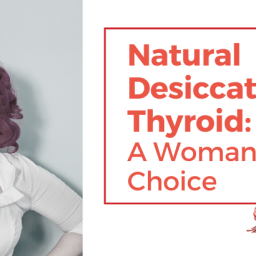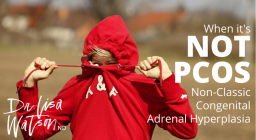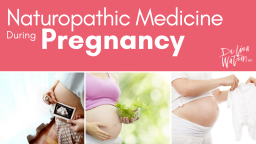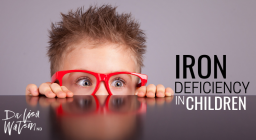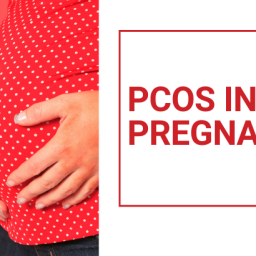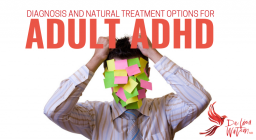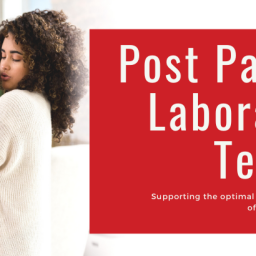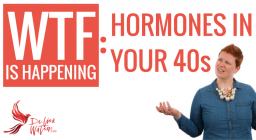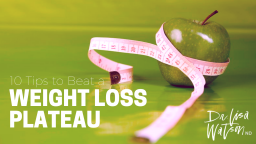
Every woman deserves to have a pregnancy that is in alignment with her personal preferences for healthy lifestyle. Having had two vegetarian pregnancies, I experienced firsthand how unprepared and uneducated most of my health care providers were to support me during my pregnancy.
But I want you to know, you can have an abundantly healthy pregnancy eating a plant-based diet. Whether you are vegan or vegetarian, it is possible to get all the nutrients you need for your health, and for the health of your child. The most important thing to know is what the key nutrients are for a healthy pregnancy, where the challenges of a plant-based diet are, and how you can make powerful decisions with your food to have a healthy, happy plant-based pregnancy.
KEY NUTRIENTS IN PREGNANCY
We all recognize that nutritional needs are higher during pregnancy than in any other stage of life. We are no longer eating for ourselves, but we are eating to support the growth and development of the next generation of our family. All nutrients are important in pregnancy, however, some nutrients are more crucial during pregnancy for the health of both mother and child. In this section I’ll be paying special attention to those nutrients that are more difficult to get in a plant-based diet.
FOLATE
The most well-known nutrient for pregnancy, folate (or folic acid) is necessary for DNA replication and the growth and development of tissues and organs in the fetus. It is well established in the research that folic acid supplementation helps to reduce the risk of several different birth defects and all women should take a folic acid supplement before and during their pregnancy.
Folate is abundant in leafy green vegetables – in fact it gets its name from the foliage that it is found in. Excellent food sources include spinach, kale, arugula, and other greens, as well as black eyed peas, beans, asparagus, broccoli, citrus fruits, and fortified grains and cereals.
VITAMIN D
Known as the “sunshine vitamin”, vitamin D is produced by the action of UV rays on special cells in our skin. Vitamin D is essential for the health of both mother and baby. It is needed for bone health, immune health, and mood support in mothers, and it is essential for fetal growth, bone development, and tooth formation.
Unfortunately research has found that more than half of pregnant women are deficient in pregnancy. Vitamin D deficiency is associated with an approximately 60% increased risk of preeclampsia in pregnancy, and all the complications that come with this diagnosis. As we live in Canada, deficiency is likely more prevalent because of poor vitamin D production during the winter months.
Currently vitamin D testing is not standard in pregnancy, but I recommend all women do vitamin D testing either before pregnancy, or within the first few weeks of pregnancy to allow for time to correct deficiencies if one is noted.
For plant based parents, there is an increased risk of vitamin D deficiency as supplemental vitamin D is often added to dairy products, making it the second most common source for vitamin D, after sun exposure.
Supplementation is recommended for most pregnancies, however dosing should be based on laboratory testing.
IRON
The most common nutrient deficiency worldwide is iron. It is no surprise that many women go into pregnancy with low iron status – especially those women with a history of heavy periods, fibroids, and women who eat a plant-based diet. The demand for iron skyrockets in pregnancy as it is needed to make red blood cells. Red blood cell production dramatically increases after week 16 of pregnancy and continues to accelerate right up until the final days of pregnancy. This is concerning for women with preexisting iron deficiency because they need more iron during the pregnancy to keep up with the demand for red blood cells, and red blood cells only live for 120 days. If they were deficient to start with they will never be able to catch up to the high demand and turnover of red blood cells.
Iron is absolutely essential for fetal growth and development, as well as oxygen delivery to the fetus and placenta through red blood cells. Low iron status in pregnancy is associated with low birth weight babies, preterm delivery, and an increased risk of autism, ADHD, schizophrenia, poor school performance in childhood, and even an increased risk of anxiety and depression in teens and young adulthood.
Iron is found in many plant foods, however it may not be sufficient to overcome deficiencies. Beans, soy, lentils, molasses, tomatoes, peas, wheat bran, broccoli, apricots, figs, raisins, and dates are all vegetarian sources of iron. It is imperative for all pregnant people to test their iron levels early in pregnancy, and again in the second trimester, to monitor for iron deficiency, and take supplements if needed.
ZINC
Zinc is a nutrient especially important in plant-based pregnancies, as it is rarely deficient in an omnivorous diet. Studies have found that a majority of vegan and vegetarians during pregnancy are not getting the recommended daily intake of zinc.
Zinc is essential for immune function, especially for supporting pregnant women in resisting infectious diseases. It is also needed for fetal growth and development, and for preventing prolonged labour.
Plant based food sources of zinc include beans, cashews, peas, and oats. However, supplementation is recommended for all plant-based parents during and before pregnancy.
CALCIUM
Necessary for bone development in babies, calcium helps to provide nutrients for a growing baby, while preventing bone loss for pregnant parents. Research has suggested that in most pregnancies intake of calcium is falling below the recommended daily intake.
Ensuring adequate calcium in pregnancy can also help to reduce the risk of preeclampsia and hypertension in pregnancy.
Plants are abundant sources of calcium, but with the daily requirements being high (1200-1500mg) reaching this level can be challenging for plant-based pregnancies. Supplementation can be a simple way of ensuring adequacy is reached. Plant sources include beans, lentils, greens, broccoli, bok choy, celery, leeks, nuts and nut butters, tahini, sesame seeds, amaranth, fortified cereals, brown rice, soy, tofu, figs, rhubarb, raisins, and dried apricots.
CHOLINE
The most underappreciated nutrient for prenatal development, choline is one of the most important for plant-based parents to be aware of. Choline is essential for brain development and it is estimated that most vegans and vegetarians are getting less than half of the daily recommended amount for pregnancy (studies have shown the average intake in a plant based diet is 192mg per day whereas the daily recommended intake in pregnancy is at least 450mg/day.) Pregnant individuals who eat eggs and dairy are more likely to consume adequate choline compared to those who do not – two eggs provide nearly all the recommended daily choline.
Some plant foods do contain choline, such as legumes, soy and tofu, green vegetables, potatoes, nuts, seeds, and grains. However, plant sources are naturally low in choline, so supplementation is very highly recommended in pregnancy.
IODINE
Worldwide, iodine deficiency during pregnancy is one of the major causes of neurological defects in children. Essential for brain development iodine requirements increase during pregnancy from 150mcg to 250mcg per day. As most iodine in our diet comes from seafoods it is found in the research that vegans are at an increased risk for iodine deficiency.
Research has found that low iodine during pregnancy can increase the risk of having a child with ADHD or a child on the autism spectrum.
Plant sources of iodine include fortified bread products (a possible concern for deficiency in people eating a gluten free diet), sea vegetables like wakame and nori, iodized table salt, green beans, zucchini, kale and watercress. However the amount of iodine in this foods is highly variable depending on the iodine content of the soil they are grown in.
In Canada all prenatal supplements contain the daily recommended amount of iodine so your iodine requirements should be covered by that daily supplement.
SUPPORTING A PLANT BASED PREGNANCY
If you are vegan or vegetarian and need more support in your pregnancy – whether it is diet recommendations, support selecting supplements, or accessing the essential laboratory testing for your health and the health of your baby, reach out. I’m here to help.
Disclaimer
The advice provided in this article is for informational purposes only. It is meant to augment and not replace consultation with a licensed health care provider. Consultation with a Naturopathic Doctor or other primary care provider is recommended for anyone suffering from a health problem.
SELECTED RESOURCES
Wallace TC, Blusztajn JK, Caudill MA, Klatt KC, Natker E, Zeisel SH, Zelman KM. Choline: The Underconsumed and Underappreciated Essential Nutrient. Nutr Today. 2018 Nov-Dec;53(6):240-253. doi: 10.1097/NT.0000000000000302. Epub 2018 Nov 13. PMID: 30853718; PMCID: PMC6259877. https://pubmed.ncbi.nlm.nih.gov/30853718/
Sebastiani G, Herranz Barbero A, Borrás-Novell C, Alsina Casanova M, Aldecoa-Bilbao V, Andreu-Fernández V, Pascual Tutusaus M, Ferrero Martínez S, Gómez Roig MD, García-Algar O. The Effects of Vegetarian and Vegan Diet during Pregnancy on the Health of Mothers and Offspring. Nutrients. 2019 Mar 6;11(3):557. doi: 10.3390/nu11030557. PMID: 30845641; PMCID: PMC6470702. https://pubmed.ncbi.nlm.nih.gov/30845641/
Avnon T, Paz Dubinsky E, Lavie I, Ben-Mayor Bashi T, Anbar R, Yogev Y. The impact of a vegan diet on pregnancy outcomes. J Perinatol. 2021 May;41(5):1129-1133. doi: 10.1038/s41372-020-00804-x. Epub 2020 Sep 1. PMID: 32873905. https://pubmed.ncbi.nlm.nih.gov/32873905/
Baroni L, Goggi S, Battaglino R, Berveglieri M, Fasan I, Filippin D, Griffith P, Rizzo G, Tomasini C, Tosatti MA, Battino MA. Vegan Nutrition for Mothers and Children: Practical Tools for Healthcare Providers. Nutrients. 2018 Dec 20;11(1):5. doi: 10.3390/nu11010005. PMID: 30577451; PMCID: PMC6356233. https://pubmed.ncbi.nlm.nih.gov/30577451/
Yisahak SF, Hinkle SN, Mumford SL, Li M, Andriessen VC, Grantz KL, Zhang C, Grewal J. Vegetarian diets during pregnancy, and maternal and neonatal outcomes. Int J Epidemiol. 2021 Mar 3;50(1):165-178. doi: 10.1093/ije/dyaa200. PMID: 33232446; PMCID: PMC7938506. https://pubmed.ncbi.nlm.nih.gov/33232446/
Kesary Y, Avital K, Hiersch L. Maternal plant-based diet during gestation and pregnancy outcomes. Arch Gynecol Obstet. 2020 Oct;302(4):887-898. doi: 10.1007/s00404-020-05689-x. Epub 2020 Aug 10. PMID: 32776295. https://pubmed.ncbi.nlm.nih.gov/32776295/
Melina V, Craig W, Levin S. Position of the Academy of Nutrition and Dietetics: Vegetarian Diets. J Acad Nutr Diet. 2016 Dec;116(12):1970-1980. doi: 10.1016/j.jand.2016.09.025. PMID: 27886704. https://pubmed.ncbi.nlm.nih.gov/27886704/


